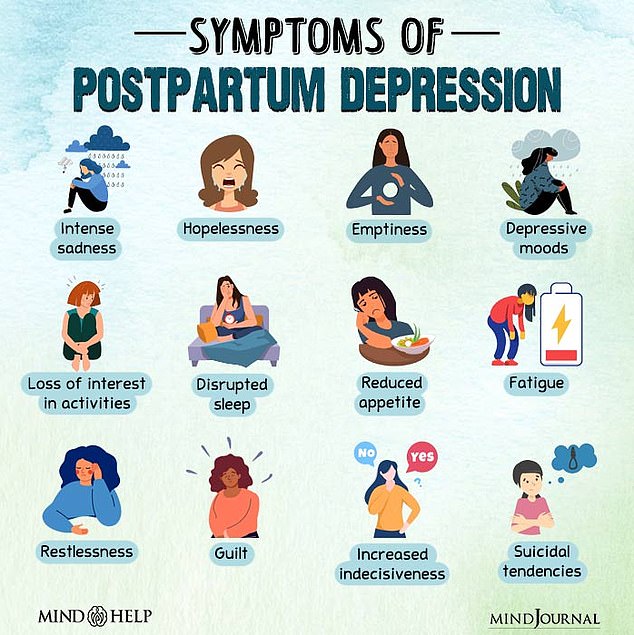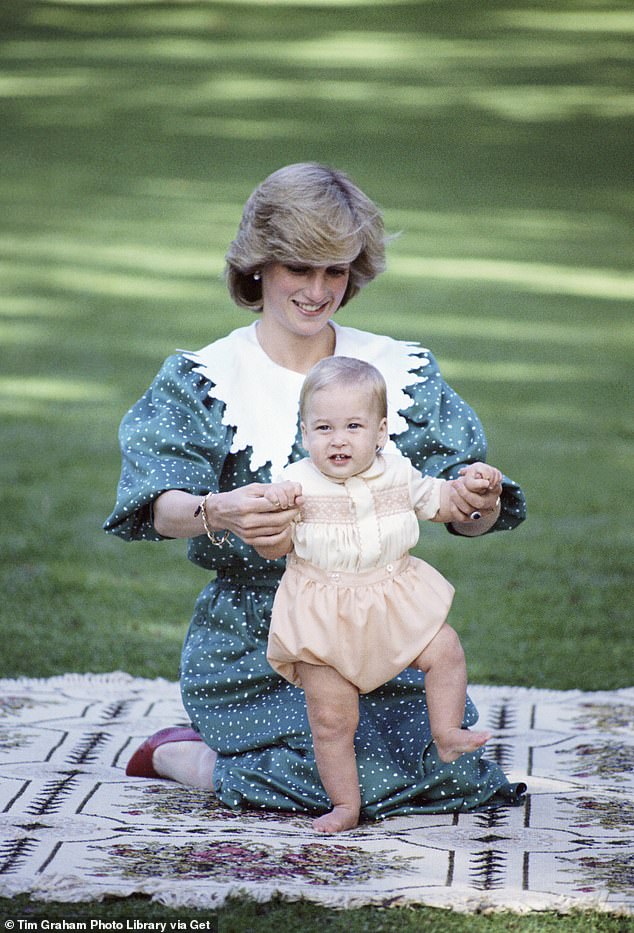Expert outraged by ‘belittling’ new research paper that recommends taking a run to beat postpartum depression
A major new research paper advising women to trade medications for exercise to treat postpartum depression has sparked outrage among women’s health experts.
The newly published analysis, by researchers at the China University of Geosciences, claims to prove this Exercise such as running at least twice a week is more effective than traditional treatments.
Antidepressants and psychological therapies are the approved remedies for the condition, which multiple studies have shown to provide benefits.
The condition – which affects about 10 million American women – is strongly linked to postpartum suicide.
According to studies, suicide is the leading cause of death in the postpartum period.
Former Victoria’s Secret model Chrissy Teigen admitted she suffered from postpartum depression after the birth of her first child and said the months after giving birth were a ‘sad existence’
Doctors have criticized the new study’s conclusions and accused the authors of underestimating the severity of the condition.
The symptoms can be debilitating, including thoughts of harming oneself or others, persistent sadness, loss of energy, and feelings of worthlessness.
Dr. Ian Bennett, an obstetrician and maternal health expert at the University of Washington, told DailyMail.com: ‘Exercise will not be enough to control more severe depression.
“We need to make sure we use stronger therapies for people in that situation.”
Meanwhile, Dr Stephanie deGiorgio, a British maternal health expert, told DailyMail.com that the conclusions were ‘disparaging’.
She said: ‘Suicide due to postnatal mental illness, including postnatal depression, is one of the leading causes of death for women in the year after birth.

Women suffering from postpartum depression often experience sadness, hopelessness, emptiness and depression
‘Postpartum depression is a serious illness that often requires treatment with medications and talking therapies.
‘While exercise is good for health and for some people with depression, it is vital that postpartum women get diagnosed with this very serious condition and receive the right evidence-based treatment for them, from a healthcare professional.
Well-known figures who suffer from this include model and influencer Chrissy Teigen and the late Princess Diana.
In 2020, Teigen admitted that she experienced a “flatline of life” after the birth of her first child, Luna.
Meanwhile, the ‘people’s princess’ revealed to the BBC that she had suffered postpartum depression after the birth of her first child, Prince William.
For the latest study, scientists in China analyzed 26 studies, including nearly 2,900 pregnant and postpartum women aged 18 and older.
They concluded: ‘The efficacy of aerobic exercise in preventing and treating postpartum depression is significant compared with standard care.
“The optimal prescribed exercise volume for intervention includes a frequency of three to four exercise sessions per week, moderate intensity (35 to 45 minutes).”
Dancing was the most effective exercise, with almost 87 percent of those who did it reporting an improvement in their symptoms, followed by 73 percent of swimmers and 54 percent of people who ran, walked and cycled.
Exercise is known to have antidepressant effects and is almost always recommended to people suffering from depression and anxiety.
But experts believe that recommending this as a first-line treatment for severe PPD undermines the severity of the condition and the need for therapy and medications.
They came to their conclusion based on various academic and scientific articles from five databases.

Princess Diana publicly mentioned her struggle with postpartum depression during a 1995 interview
Previous research has shown that psychotherapy and antidepressants, especially SSRIsare much more effective physical activities in improving symptoms of postpartum depression.
Psychiatrists at the Medical University of South Carolina said: ‘Women with mild to moderate depressive symptoms in the postpartum period should be offered psychotherapy as a first-line treatment. Antidepressants and therapy are recommended for women with moderate to severe depression.”
The authors of the current study, published in the journal PLOS One, admit that the research does not provide a “conclusive determination” of “what specific exercise” women with the condition should do.
They also say their findings don’t necessarily represent what would be true for the entire mother population.
Moreover, any benefits would depend greatly on the frequency and intensity of exercise, they say.
Dr. Bennett added: ‘We should not discount studies on the preventive power of exercise, the development of depression and the treatment of mild to moderate depression.
“But I would be very skeptical of a study that said aerobic exercise alone was sufficient for treating people with severe depression and a risk of suicide.”
